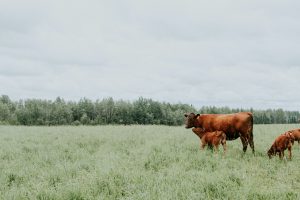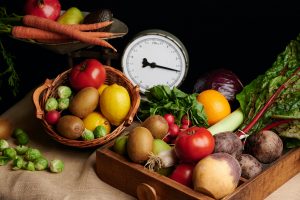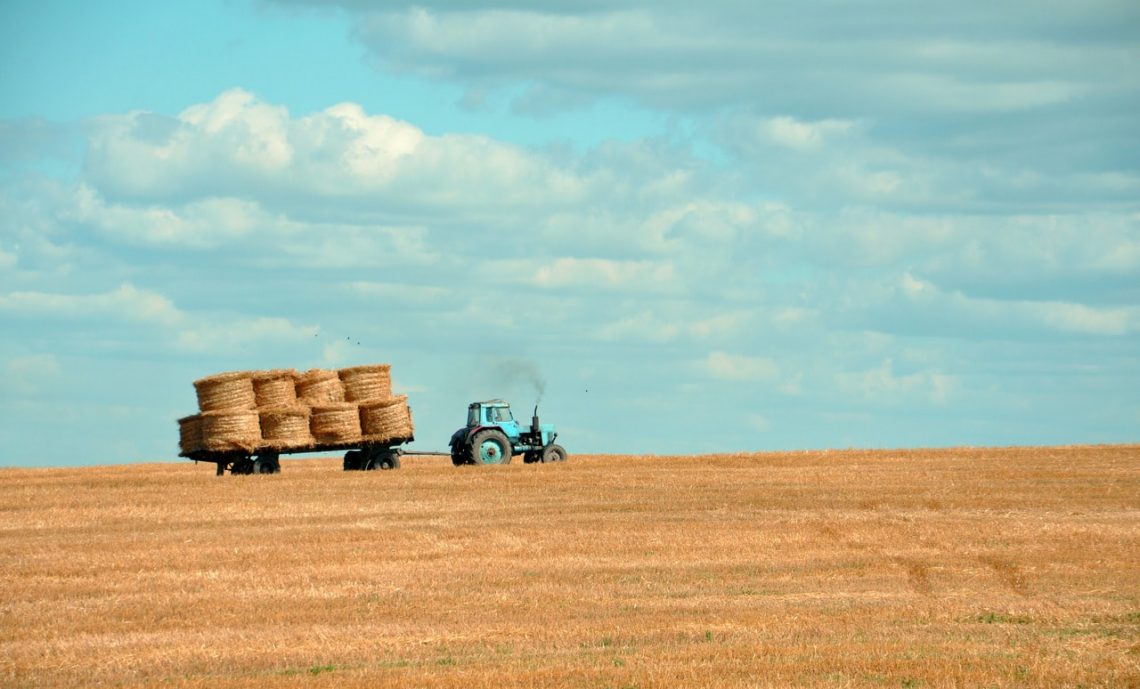Written by Salina Edwards
Unimpeded increases in greenhouse gas emissions released into the atmosphere are contributing to the extreme rising and falling temperatures on our planet [1]. As global temperatures rise, these increases have devastating consequences on agricultural production for farmers in British Columbia.
Agriculture is highly vulnerable to climate change, and temperature-related disruptions in the food system are destabilizing crop outputs and contributing to food insecurities. Crop production relies on several sensitive factors, including the length of growing season, typical temperature averages, timing of crop placement, and severity of hot and cold weather spells.
Rural Youth in Agriculture
Younger generations who inherit farming practices will continue to be disproportionately affected by current anthropogenic climate changes. As agriculture structures change, there has been a decrease of youth involvement in rural farms. General trends reported by Statistics Canada indicate that the number of farms operated by younger generations has been steadily declining [2]. British Columbia was reported as having the smallest proportion of young operators, with only 5.11% of farmers under the age of 35 in 2021 [3].
Youth involvement in agricultural sectors is crucial for mitigating future impacts of extreme temperatures on rural farming systems. In order to increase resiliency in youth, recognizing that youth are active agents and possess strong and influential voices is a critical first step to empowering our younger generations. Read on to find out how youth can be more involved in agriculture and meaningfully participate in conversations surrounding extreme temperature effects on rural farming systems.
The Importance of Rural Farms in BC
According to the Canadian 2022 census, there are nearly 190,000 agricultural farms in British Columbia alone [4]. Agricultural production represents approximately 48% of BC’s $2.2 billion revenue from farming operations and has shown sustainable growth within the past decade [5].
Not only is farming an integral part of British Columbia’s economy, but it also plays a vital role in rural community development. Farming is the fabric of rural communities, supporting employment, ancillary businesses, and environmental services [6]. Rural farmers rely on their businesses to sustain lifestyles that, in some cases, have been passed down multiple generations.

Community members also rely on each other during times of hardship by supporting one another through adversities in sharing resources, knowledge, and helping hands. As someone who grew up on a farm in rural Northern BC, I can attest to the importance of community connection, especially during busy harvesting seasons. Neighbours are sometimes the first to receive a call when assistance is needed and access to urban services is not immediate.
Extreme Temperature and Plant Growth
Crops are extremely susceptible to temperature changes, and a fluctuation of even a few degrees can dramatically disrupt the growing process. Higher temperatures can reduce or even halt photosynthesis, prevent pollination, and lead to crop dehydration [7]. Each plant species exhibits a defined range of maximum and minimum temperatures that form the boundaries of observable growth [7]. When temperatures increase, the aging process in plants is dramatically affected [8]. As plants begin developing at higher rates, the expected yield potential is reduced.
Regional Impacts of Temperature Rises in BC
Here’s a snapshot of what extreme temperature effects could look like in BC:
- In the BC Interior, warmer winters increase the frequency of rain-on-snow events and thaw-freeze cycles, creating hazardous conditions for livestock and increasing winterkill of grasses and management costs [9].
- Warmer winters affect the survival and distribution of pests and diseases [9].
- More frequent droughts in various regions may decrease crop yields and increase costs [9].
- Drier summers increase wildfire risk [9].
- Extreme heat in the Okanagan increases demand for water, causes sunscald, and reduces size and quality of harvests [9].
Canola: BC’s Golden Crop

Canada plays a crucial role in agricultural production as the world’s fifth-largest exporter of agriculture and agri-food products [10], and the world leader in canola exports [11]. Data gathered from Statistics Canada indicates that Canola, BC’s most important and widely produced crop, fell in stock by 49.3% in 2022 [12]. Reduced production in 2021 is largely attributed to a lower opening supply, with these numbers being the lowest recorded in over a decade [12].
Product scarcity contributes to price inflation and food insecurity for consumers, as well as livestock who rely on agricultural outputs as food and energy sources throughout winter. More than 50 nations import canola seed, oil, and meal from Canada, illustrating the importance of canola to the Canadian economy.
Psychological Outcomes
Rural farmers facing agricultural insecurities are susceptible to higher stress levels, having both physical and psychological consequences. Pressure caused by weather changes and resulting financial difficulties are two examples of stressors that contribute to mental health difficulties in rural farmers. Stress is a subjective experience that is dependent on the interaction between the individual and the environment and can interfere with an individual’s quality of daily life [13]. High levels of chronic stress affect memory processes, cause impairments in cognitive functioning, and increase the potential for further development of other highly comorbid disorders, including anxiety and depression.
Coping strategies against the effects of stress fit into two broad categories:
- Problem-focused Coping
- Emotion-focused Coping
Problem-focused coping involves taking direct action to solve the problem or seeking information that will be relevant to the solution [14], such as asking for support or practicing time management. Emotion-focused coping refers to reducing emotional reactions to stress [14], such as engaging in positive thinking or reframing strategies.
Click here for a compiled list of mental health resources for producers and processors in the agriculture and food sector, courtesy of the BC Ministry of Agriculture, Food and Fisheries.
Adaptation Strategies to Temperature Increases
As the climate continues to change, extreme temperatures will continue to directly impact British Columbia’s agricultural sector. The Government of BC has implemented the Farm Adaptation Innovator Program, which seeks to increase the adaptive capacity of the agricultural sector. This is done by encouraging the adoption of effective farming practices to help reduce climate change impacts [15]. Some examples of these strategies are listed below.
- Conservation tillage reduces soil erosion, conserves soil moisture, and reduces fuel and labour costs.
- Management-intensive grazing improves biodiversity, decreases winter feeding costs, and reduces potential for soil erosion.
- Nutrient management positively affects crop yield and quality, reduces fertilizer costs, and improves plant and animal health.
- Drainage strategies increase the range of crops grown, reduce environmental risks, and improve environmental quality.
For more information on increasing agricultural adaptation to climate change, visit the Government of BC’s adaptation strategies.

Next Steps
Some ways the reader can help rural farmers in climate change adaptation is to engage in meaningful conversations regarding the effects of extreme temperatures on rural farming systems. How can can you get involved in ensuring the resilience of BC’s rural farming systems?
- Support youth and younger generations, who will be affected the greatest by global temperature increases.
- Policy makers and local governments play a significant role in combating climate change so it’s important to stay informed about which policies and initiatives are supported by your local representative, and how their decisions may affect rural communities.
- Consumers in BC can choose to purchase produce directly from local food sources, supporting rural farmers and overall reducing greenhouse gas emissions [16].
Find farm-to-fork options near you, or stop by your next local farmer’s market!
Programs for Youth
See below for some programs centred on youth involvement in agriculture.
- 4-H British Columbia is a program that provides a safe and inclusive environment for youth development in areas of knowledge, leadership, citizenship, and personal development in agriculture and other aspects of rural community lifestyles. It also empowers youth to make positive changes in their communities.
- BC Young Farmers is a committee of the BC Agriculture Council that is committed to representing the voice of the next generation of farmers and ranchers in BC with a keen interest in sharing youth perspectives with government to influence future policy decisions to support long-term sustainability of agriculture.
- UBC Farm at the Centre for Sustainable Food Systems is a research and learning centre that employs students, hosts community workshops, and organizes summer youth camps to teach values related to sustainable food systems.

Which strategies can you use to improve the resiliency of rural youth in agriculture? Please share with us in the comment section below!
Contact us at rhsrn.bc@ubc.ca or find us on Twitter @RHSRNbc.
References
[1] “How Climate Change Is Fueling Extreme Weather,” Earthjustice, Jun. 01, 2021. https://earthjustice.org/features/how-climate-change-is-fueling-extreme-weather (accessed May 25, 2022).
[2] S. C. Government of Canada, “Canadian Agriculture at a Glance,” Feb. 18, 2014. https://www150.statcan.gc.ca/n1/pub/96-325-x/2014001/article/11905-eng.htm#a1 (accessed Jun. 23, 2022).
[3] S. C. Government of Canada, “Census of Agriculture: Farm and Farm Operator Data Visualization Tool,” May 11, 2022. https://www150.statcan.gc.ca/n1/pub/71-607-x/71-607-x2022006-eng.htm (accessed Jun. 23, 2022).
[4] “Census of Agriculture.” https://www.statcan.gc.ca/en/census-agriculture (accessed May 17, 2022).
[5] “importanceofag_BC.pdf.” Accessed: May 17, 2022. [Online]. Available: https://foodsecurecanada.org/sites/foodsecurecanada.org/files/importanceofag_BC.pdf
[6] “Agriculture’s Contribution to Rural Development.” https://www.iatp.org/sites/default/files/Agricultures_Contribution_to_Rural_Development.htm (accessed May 17, 2022).
[7] “Bookstore – Plan B 3.0: Mobilizing to Save Civilization | Chapter 3. Rising Temperatures and Rising Seas: The Crop Yield Effect | EPI.” http://www.earth-policy.org/books/pb3/PB3ch3_ss3 (accessed May 17, 2022).
[8] J. L. Hatfield and J. H. Prueger, “Temperature extremes: Effect on plant growth and development,” Weather Clim. Extrem., vol. 10, pp. 4–10, Dec. 2015, doi: 10.1016/j.wace.2015.08.001.
[9] E. Crawford and R. Beveridge, “Strengthening BC’s Agriculture Sector in the Face of Climate Change,” p. 20.
[10] B. Qian et al., “Climate change impacts on Canadian yields of spring wheat, canola and maize for global warming levels of 1.5 °C, 2.0 °C, 2.5 °C and 3.0 °C,” Environ. Res. Lett., vol. 14, no. 7, p. 074005, Jul. 2019, doi: 10.1088/1748-9326/ab17fb.
[11] “Canola industry in Canada, from farm to global markets,” The Canola Council of Canada. https://www.canolacouncil.org/about-canola/industry/ (accessed May 17, 2022).
[12] S. C. Government of Canada, “The Daily — Stocks of principal field crops, March 31, 2022,” May 06, 2022. https://www150.statcan.gc.ca/n1/daily-quotidien/220506/dq220506d-eng.htm (accessed May 17, 2022).
[13] “VitalSource Bookshelf: Adult Development and Aging, Canadian Edition.” https://online.vitalsource.com/reader/books/9781119506959/epubcfi/6/20[%3Bvnd .vst.idref%3DAc05]!/4/2/4[c05-sec-0001]/4/4/2/2/4/2[c05-list-0001]/20[c05-li-0010] (accessed Jun. 02, 2022).
[14] “VitalSource Bookshelf: (WCS CAN) University of British Columbia Abnormal Psychology E-Text.” https://online.vitalsource.com/reader/books/9781119781851/pageid/232 (accessed Jun. 05, 2022).
[15] M. of A. and Food, “Increasing agricultural adaptation – Province of British Columbia.” https://www2.gov.bc.ca/gov/content/industry/agriculture-seafood/agricultural-land-and-environment/climate-action/adapting-to-climate-change/increasing-agricultural-adaptation (accessed Jun. 05, 2022).
[16] S. Rotz and E. D. G. Fraser, “Resilience and the industrial food system: analyzing the impacts of agricultural industrialization on food system vulnerability,” J. Environ. Stud. Sci., vol. 5, no. 3, pp. 459–473, Sep. 2015, doi: 10.1007/s13412-015-0277-1.

Leave a Reply to Kelvin Cancel reply